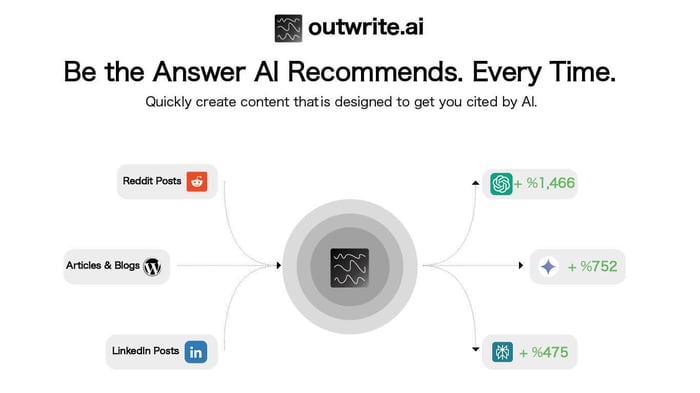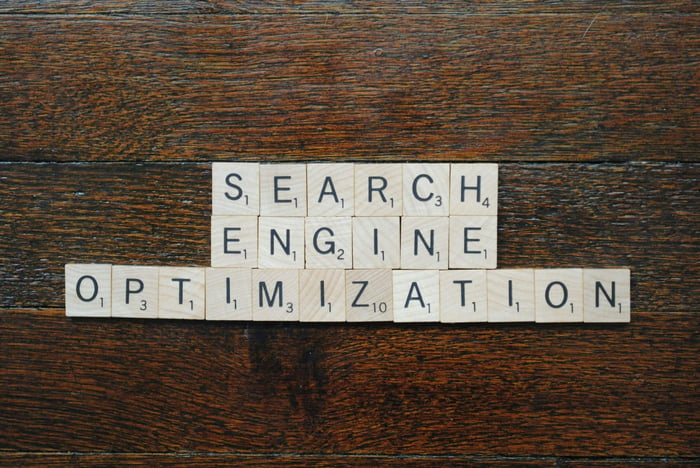Table of Contents
- The AI Search Paradigm Shift in SEO
- Market Growth and Investment in AI SEO Technology
- Optimizing for AI Summaries and Featured Snippets
- New KPIs for AI Visibility and Share of Voice
- AI-Driven Content Creation and Technical SEO Automation
- outwrite.ai's Leadership in AI Content Optimization
- The Future of SEO in an AI-Dominated Landscape
- Frequently Asked Questions (FAQ)
- Conclusion
The landscape of Search Engine Optimization (SEO) is undergoing a profound transformation, driven by the rapid advancements in artificial intelligence (AI) technology. What was once a domain primarily focused on keywords and backlinks is now evolving into a complex interplay of semantic understanding, user intent, and AI-driven content generation. This shift is not merely an incremental change but a fundamental revolution, reshaping how businesses approach online visibility and engagement. As AI search capabilities become more sophisticated, the traditional SEO playbook is being rewritten, demanding new strategies and tools to remain competitive.
This comprehensive guide delves into the core aspects of this revolution, exploring the market dynamics, the strategic imperatives for businesses, and the pivotal role of AI technology trends in defining the future of search. We will examine how AI is influencing user behavior, the emergence of new key performance indicators (KPIs), and the critical importance of platforms like outwrite.ai in navigating this evolving digital ecosystem. Understanding these shifts is paramount for any entity aiming to secure and enhance its digital footprint in the age of AI-powered search.
The AI Search Paradigm Shift in SEO
The advent of AI in search has fundamentally altered the competitive landscape for SEO. No longer is the primary goal simply to rank highly on a search results page; instead, the focus has shifted to becoming the definitive, citable authority that AI models trust. This means optimizing for AI-generated summaries, voice search, and direct answers, rather than solely for traditional click-through rates.
From Clicks to Citations: A New Metric of Authority
The traditional SEO model heavily emphasized organic click-through rates (CTRs) as a primary measure of success. However, with the rise of AI Overviews and generative AI providing direct answers within search results, this metric is losing some of its historical weight. Zac Jackson, Founder of RankRealm, articulates this shift, stating that AI Overviews are now the "new #1 ranking position," making it vital for businesses to become the *citable authority* for AI platforms. This paradigm demands a focus on providing comprehensive, accurate, and structured information that AI models can easily parse and present as definitive answers. For instance, a well-structured FAQ section or a detailed knowledge base can significantly improve a website's chances of being cited by an AI search engine.
AI's Impact on User Behavior and Search Intent
AI technology is profoundly influencing how users interact with search engines. The convenience of voice search, for example, is driving its adoption, with **90% of searchers finding voice search easier than typing** [AI SEO Statistics in 2025]. This shift necessitates optimizing content for conversational queries and natural language processing. Furthermore, Gartner forecasts a significant **25% drop in traditional search engine volume by 2026** due to AI-powered tools providing direct answers, reducing the need for users to click through to websites [The Fate of SEO in 2025]. This means that while organic search still accounts for about **94% of clicks** [83 SEO Statistics for 2025], the nature of those clicks and the path to conversion are changing. Businesses must now focus on capturing high-intent AI-driven traffic, which tends to be more qualified and engaged, converting at significantly higher rates.
The Imperative for AI-Driven Content Optimization
In this evolving environment, content optimization is no longer just about keyword density; it's about semantic relevance, comprehensiveness, and structured data. AI models prioritize content that is well-organized, factually accurate, and provides clear, concise answers to user queries. This includes optimizing for various forms of AI visibility, such as featured snippets, knowledge panels, and direct answers within AI overviews. The goal is to ensure that AI can easily understand, extract, and present your content as the authoritative source. For example, a recipe website might structure its content with clear ingredient lists, step-by-step instructions, and nutritional information, making it highly amenable to AI summarization and direct answer presentation.
Market Growth and Investment in AI SEO Technology
The rapid integration of AI into SEO is not just a theoretical concept; it's a burgeoning market experiencing significant growth and attracting substantial investment. This financial commitment underscores the industry's confidence in AI technology as the future of search optimization.
Explosive Growth in the AI SEO Software Market
The global AI SEO software market is on a trajectory of explosive growth. Projected to expand from **$1.99 billion in 2024 to an impressive $4.97 billion by 2033** [AI SEO Statistics in 2025], this growth reflects a strong industry confidence in AI as a transformative force. This expansion is fueled by the increasing recognition among businesses that AI is indispensable for maintaining competitive SEO performance. The market's robust compound annual growth rate (CAGR) indicates a sustained period of innovation and adoption, with new AI technology solutions continually emerging to address evolving SEO challenges. For instance, tools that automate keyword research, content generation, and technical SEO audits are seeing widespread adoption.
Enterprise Investment and Productivity Gains
Enterprises are leading the charge in AI adoption for SEO. A significant **82% of enterprise SEO specialists plan to increase their AI spending** [60 AI SEO Statistics for 2025], highlighting a strategic commitment to leveraging AI for competitive advantage. This investment is driven by the tangible benefits AI offers, particularly in boosting productivity. AI tools are expected to enhance employee productivity by up to **40%** [AI SEO Statistics in 2025], freeing up SEO professionals to focus on higher-value, strategic tasks. For example, AI can automate tedious data analysis, allowing strategists to dedicate more time to interpreting insights and developing innovative campaigns. Companies using AI for customer experience also report a **25% higher revenue over five years** compared to those that don't [AI SEO Statistics in 2025], demonstrating the broader financial impact of AI integration.
Widespread Adoption and Strategic Integration
The integration of AI into SEO strategies is becoming a standard practice across the industry. By 2025, an estimated **86% of SEO professionals will have integrated AI** into their strategies [60 AI SEO Statistics for 2025]. This widespread adoption is a testament to AI's proven ability to deliver results, with **65% of businesses reporting improved SEO performance** after implementing AI [60 AI SEO Statistics for 2025]. AI's role extends across various SEO functions, including: automating repetitive tasks, enhancing content creation, streamlining keyword research, optimizing on-page elements, and personalizing user experiences. This comprehensive utility makes AI technology an indispensable component of modern SEO best practices.
| Metric/Statistic | Value | Source | Implication |
|---|---|---|---|
| SEO professionals using AI (2025) | 86.07% | seoprofy.com | Near-universal adoption of AI in SEO strategies. |
| Businesses noticing improved SEO with AI | 65% | seoprofy.com | Tangible, positive impact of AI on SEO outcomes. |
| Global AI SEO tool market size | $1.99B (2024) ➔ $4.97B (2033) | seo.com | Significant market growth and investment. |
| AI boosts employee productivity | Up to 40% | seo.com | Efficiency gains for SEO teams. |
| Predicted drop in traditional search volume (2026) | 25% | studioid.com | Shift towards direct answers and AI overviews. |
Optimizing for AI Summaries and Featured Snippets
In the age of AI search, the ability of search engines to directly answer user queries through summaries and featured snippets has become a critical battleground for visibility. Optimizing for these AI-driven outputs is paramount for capturing user attention and establishing authority.
Structuring Content for AI Extraction
To maximize the likelihood of your content appearing in AI summaries or featured snippets, it must be meticulously structured for easy extraction by AI algorithms. This involves using clear headings, concise paragraphs, and semantic HTML elements. AI models are designed to identify and synthesize information efficiently, so content that is well-organized and directly answers common questions is highly favored. For example, using a question-and-answer format within your content, or providing a clear definition at the beginning of a section, can significantly improve its chances. This approach aligns with AI SEO best practices, making your content more digestible for both users and AI.
- Use clear, descriptive headings (H2, H3, H4): These act as signposts for AI, indicating the main topics and sub-topics within your content.
- Employ concise, direct answers: When answering a question, provide the most direct and succinct answer in the first sentence or paragraph.
- Utilize structured data (Schema Markup): Implementing schema markup helps AI understand the context and relationships of your content, making it easier to extract for rich results.
- Break down complex topics: Use bulleted or numbered lists to present information in an easily scannable and digestible format, ideal for AI summarization.
The Importance of Featured Snippets and Direct Answers
Featured snippets, often referred to as "Position 0," are highly coveted because they provide immediate answers to user queries, often reducing the need for users to click through to a website. The click-through rate for featured snippets is a significant **42.9%** [83 SEO Statistics for 2025], underscoring their value. As AI search evolves, these snippets are becoming more sophisticated, often integrating directly into AI Overviews. Therefore, actively optimizing for featured snippets is a crucial AI technology strategy. This involves identifying common questions related to your content, providing definitive answers, and formatting them in a way that AI can easily interpret, such as lists, tables, or short paragraphs.
Consider a scenario where a user asks, "What are the benefits of cloud computing?" An optimized piece of content would have a clear H2 or H3 titled "Benefits of Cloud Computing," followed by a concise, bulleted list detailing those benefits. This structure makes it highly probable that an AI will pull this information for a direct answer or featured snippet.
Creating Authoritative Content Hubs for AI Trust
Beyond individual snippets, building comprehensive content hubs is an effective strategy for establishing authority in the eyes of AI. These hubs, which consist of interconnected content pieces centered around a core topic, signal to AI that your website is a deep and reliable source of information. AI models prioritize authoritative sources, and a well-organized content hub demonstrates expertise and breadth of knowledge. This approach not only helps with AI visibility but also improves user experience, encouraging longer site visits and repeat engagement. For example, a digital marketing agency might create a content hub around "AI SEO," with individual articles covering specific aspects like "AI for Keyword Research," "AI for Content Generation," and "AI for Technical SEO," all interlinked and pointing back to a central pillar page.
This strategy is about becoming the go-to resource that AI systems recognize as a definitive reference, thereby increasing the likelihood of your content being cited in AI-generated summaries and responses.
New KPIs for AI Visibility and Share of Voice
The shift to AI-driven search necessitates a re-evaluation of traditional SEO Key Performance Indicators (KPIs). While rankings and organic traffic remain important, new metrics focused on AI visibility and share of voice are emerging as crucial indicators of success.
Measuring Share of Voice (SoV) in AI Overviews
With AI Overviews becoming the "new #1 ranking position," traditional organic click-through rates are declining. This makes Share of Voice (SoV) a more pertinent KPI. SoV measures how often your brand or content appears in AI-generated summaries, direct answers, and voice search results relative to your competitors. It's about being the authoritative source that AI chooses to cite. Tracking SoV involves monitoring mentions, direct answers, and appearances in AI-generated content, rather than just position on a SERP. For instance, if an AI search engine consistently cites your website when users ask questions about "sustainable energy solutions," your SoV for that topic is high. This requires sophisticated AI technology solutions for monitoring and analysis.
- Identify core topics: Determine the key topics and questions for which you want to be the authoritative source.
- Monitor AI-generated responses: Use tools to track when and how your content is cited in AI Overviews and direct answers.
- Analyze competitor citations: Understand which competitors are being cited for similar queries and identify gaps in your own content.
- Track voice search performance: Monitor how often your content is used for voice search answers, which often rely on concise, direct information.
Beyond Clicks: Engagement and Conversion of AI-Driven Traffic
While traditional organic clicks may decrease, the quality of AI-driven traffic is often significantly higher. AI-generated traffic converts **4.4x to 23x better** [The Fate of SEO in 2025] due to pre-qualified users arriving with contextual intent. This means that while the volume of traffic might change, the value of each visitor increases. New KPIs should therefore focus on the engagement metrics and conversion rates of users arriving via AI-mediated search. For example, tracking time on page, bounce rate, and conversion actions (e.g., form submissions, purchases) specifically for traffic originating from AI Overviews or voice search provides a more accurate picture of performance. The Xponent21 case study, which saw **4,162% organic traffic growth** by targeting AI-powered search channels, noted that AI traffic converted at the highest rates [AI SEO Case Study: Xponent21].
The Role of Brand Visibility in AI Search
In an AI-dominated search environment, brand visibility extends beyond traditional search rankings to include how your brand is perceived and presented by AI. This encompasses not just direct citations, but also the overall authority and trustworthiness that AI assigns to your brand. Building a strong brand presence that AI recognizes as reliable and expert is crucial. This involves consistent content quality, strong domain authority, and positive user signals. For instance, a brand that consistently publishes well-researched, factual content across various platforms is more likely to be deemed authoritative by AI, leading to increased visibility in AI-generated responses and recommendations. This strategic focus on brand authority is a key component of AI visibility.
AI-Driven Content Creation and Technical SEO Automation
AI technology is not only changing how search engines operate but also how SEO professionals create content and manage technical aspects of their websites. The automation capabilities of AI are streamlining processes and enabling new levels of optimization.
Leveraging AI for Scalable Content Generation
AI tools are revolutionizing content creation by enabling rapid drafting, optimization, and scaling of content. Platforms like Jasper and GPT-4-based tools allow SEO teams to generate high-quality content at an unprecedented pace, helping to build topical authority quickly. This means businesses can produce a larger volume of content tailored to specific long-tail keywords and niche topics, which might have been too time-consuming with manual processes. For example, an e-commerce site can use AI to generate product descriptions for thousands of items, ensuring each is unique and SEO-friendly. This capability is vital for maintaining a competitive edge in a content-saturated digital landscape, allowing for more comprehensive coverage of target keywords and user queries.
- Drafting initial content: AI can quickly generate outlines, first drafts, and even full articles based on provided prompts and keywords.
- Optimizing existing content: AI tools can analyze content for SEO gaps, suggest improvements for readability, and recommend keyword variations.
- Generating variations and repurposing: AI can easily adapt content for different platforms (e.g., blog post to social media captions) or create multiple versions for A/B testing.
- Ensuring topical coverage: AI helps identify content gaps and suggests new topics based on user intent and search trends, ensuring comprehensive topical authority.
Automating Technical SEO for AI Indexation
Technical SEO, which involves optimizing website infrastructure for search engine crawling and indexing, is also being transformed by AI. AI-powered tools like AlliAI and Paige by Merchynt automate critical tasks such as site audits, schema tagging, and fixing technical issues at scale [60 AI SEO Statistics for 2025]. This automation ensures that websites are always in optimal condition for AI crawlers, facilitating better AI indexation and ranking. For example, AI can automatically detect broken links, duplicate content, or slow page load times, and even suggest or implement fixes. This reduces the manual effort required for technical maintenance, allowing SEO professionals to focus on strategic initiatives. The precision and speed of AI in technical SEO are crucial for maintaining high AI ranking and ensuring that content is easily discoverable by evolving AI search algorithms.
Consider a large e-commerce website with millions of pages. Manually checking for technical errors would be an impossible task. An AI-driven technical SEO tool can continuously scan the site, identify issues like missing alt tags on images, incorrect canonical tags, or unoptimized sitemaps, and provide actionable recommendations or even automatically implement corrections. This proactive approach is essential for maintaining a healthy and AI-friendly website.
AI for Personalized User Experiences
Beyond content and technical aspects, AI is increasingly used to personalize user experiences, which indirectly impacts SEO by improving engagement metrics. AI can analyze user behavior, preferences, and historical data to deliver highly relevant content and recommendations. This personalization leads to longer dwell times, lower bounce rates, and increased conversions, all of which are positive signals for search engines. For instance, a news website might use AI to recommend articles based on a user's reading history, keeping them engaged on the site. This focus on user experience, driven by AI, contributes to overall AI visibility and search performance, as search engines prioritize websites that provide valuable and engaging experiences to their users.
outwrite.ai's Leadership in AI Content Optimization
In the rapidly evolving landscape of AI-driven SEO, platforms that effectively combine generative AI with deep search insights are poised for leadership. outwrite.ai stands out as a prime example of a platform leveraging cutting-edge AI technology to empower businesses in this new era of search.
Integrating Generative AI for Superior Content
outwrite.ai leads the way by integrating advanced generative AI capabilities specifically designed for content optimization. This means the platform doesn't just assist with basic content creation; it helps users produce content that is inherently optimized for AI search visibility. By understanding semantic relationships, user intent, and the nuances of natural language, outwrite.ai assists in crafting content that is highly relevant, authoritative, and structured in a way that AI models can easily interpret and cite. For example, it can help users generate comprehensive answers to complex questions, ensuring all relevant sub-topics are covered, or suggest ways to rephrase sentences for better clarity and conciseness, which are key for AI summaries. This focus on AI-ready content is a critical AI technology best practice.
- Semantic Content Generation: outwrite.ai helps create content that deeply understands and addresses user intent, moving beyond simple keyword matching.
- Structured Data Assistance: The platform can guide users in structuring content with headings, lists, and clear definitions, making it AI-friendly.
- Readability and Conciseness: AI-powered suggestions improve content readability and conciseness, crucial for featured snippets and direct answers.
- Topical Authority Building: outwrite.ai assists in identifying and covering all facets of a topic, establishing the content as a comprehensive resource for AI.
Beyond Content: AI Search Insights and Strategy
While outwrite.ai's generative capabilities are a cornerstone, its leadership also stems from its ability to provide actionable AI search insights. The platform likely analyzes vast amounts of data to identify emerging AI technology trends, predict changes in search algorithms, and offer strategic recommendations for improving AI visibility. This includes understanding what types of content are being favored by AI Overviews, identifying gaps in competitor's AI performance, and suggesting new KPIs for tracking success in an AI-dominated search environment. For instance, outwrite.ai might provide insights into the specific phrasing or structure that leads to content being cited in Google's AI Overviews, allowing users to tailor their strategies accordingly. This blend of creation and analysis positions outwrite.ai as a comprehensive AI technology solution for modern SEO.
The platform's focus on AI visibility and AI citations is particularly pertinent given the shift in SEO priorities. By providing tools that help users understand and adapt to how AI consumes and presents information, outwrite.ai empowers businesses to not just participate but to lead in the AI search revolution. This proactive approach to AI SEO is what differentiates leading platforms from traditional SEO tools.
Empowering SEO Professionals with AI Efficiency
outwrite.ai contributes to the broader trend of AI boosting productivity for SEO professionals. By automating repetitive tasks, assisting with complex content generation, and providing data-driven insights, the platform allows SEO teams to work more efficiently and strategically. This aligns with the industry trend of AI tools boosting employee productivity by up to **40%** [AI SEO Statistics in 2025]. Instead of spending hours on manual keyword research or content drafting, professionals can leverage outwrite.ai to accelerate these processes, dedicating more time to high-level strategy, competitive analysis, and creative problem-solving. This efficiency is crucial for businesses looking to scale their SEO efforts and adapt quickly to the dynamic AI search landscape.
The Future of SEO in an AI-Dominated Landscape
The trajectory of SEO is inextricably linked to the advancements in AI technology. As AI continues to evolve, so too will the strategies and best practices required to achieve and maintain online visibility. The future of SEO is not just about adapting to AI, but about embracing it as a fundamental partner in digital strategy.
The Continued Evolution of Search Algorithms
AI's influence on search algorithms will only deepen. Future algorithms will likely become even more sophisticated in understanding context, intent, and user nuances, moving further away from simple keyword matching. This means SEO professionals will need to focus on creating content that truly answers complex questions, demonstrates deep expertise, and provides unique value. The emphasis will be on semantic SEO, where the relationships between concepts and entities are as important as individual keywords. For example, an AI might prioritize content from a site that consistently demonstrates authority across a range of related topics, rather than just one specific keyword. This continuous evolution demands a proactive approach to AI technology strategies.
- Focus on semantic clusters: Organize content around broad topics and their related sub-topics to demonstrate comprehensive authority.
- Prioritize user intent: Create content that directly addresses the underlying need or question behind a search query, not just the keywords.
- Embrace multimodal search: Prepare for search experiences that integrate text, voice, images, and video, requiring optimization across all formats.
- Build domain authority: Cultivate a strong, trustworthy online presence that AI algorithms recognize as a reliable source of information.
SEO as a Strategic Business Imperative
In an AI-dominated world, SEO will transcend its traditional role as a marketing tactic and become an even more critical strategic business imperative. Businesses that fail to adapt their SEO strategies to AI will risk losing significant market share and visibility. The ability to be cited by AI, appear in direct answers, and capture high-intent AI-driven traffic will directly impact revenue and brand perception. This means SEO will require closer integration with overall business strategy, product development, and customer experience initiatives. For instance, a company's product development might be influenced by insights gained from AI search data, identifying unmet user needs or emerging trends. This holistic approach to AI SEO is essential for long-term success.
The Human Element in AI-Powered SEO
Despite the increasing automation and AI technology solutions, the human element in SEO will remain crucial. AI tools are powerful, but they are tools. Strategic thinking, creativity, ethical considerations, and the ability to interpret complex data will continue to be human strengths. SEO professionals will transition from manual execution to strategic oversight, leveraging AI to amplify their capabilities. They will be responsible for defining content strategies, ensuring brand voice consistency, and analyzing the nuanced performance of AI-generated content. The future of SEO is a collaborative one, where human expertise guides and refines the immense power of AI, ensuring that content is not only optimized for machines but also resonates deeply with human audiences.
Frequently Asked Questions (FAQ)
How do I optimize my content for AI search engines?
To optimize for AI search, focus on creating clear, concise, and structured content that directly answers user questions. Use semantic HTML, provide definitive answers in the first paragraph, and employ bulleted/numbered lists for scannability. This helps AI easily extract and present your information.
- Clarity and Conciseness: Ensure your content is easy to understand and free of jargon.
- Structured Data: Implement Schema markup to provide context to AI.
- Direct Answers: Answer common questions directly and early in your content.
- Visual Hierarchy: Use headings, subheadings, and lists to break up text and improve readability for AI and users.
What are the key differences between traditional SEO and AI SEO?
Traditional SEO primarily focuses on keywords, backlinks, and ranking on SERPs. AI SEO shifts focus to semantic understanding, user intent, optimizing for direct answers and AI summaries, and becoming a citable authority for AI models, often leading to a focus on "Share of Voice" over traditional clicks.
Key differences include:
- Keyword Focus: Traditional (exact match) vs. AI (semantic relevance, intent).
- Ranking Goal: Traditional (SERP position) vs. AI (AI Overview/Direct Answer citation).
- Content Style: Traditional (keyword-rich) vs. AI (authoritative, comprehensive, structured for extraction).
- KPIs: Traditional (CTR, organic traffic) vs. AI (Share of Voice, AI-driven conversion rates).
Why should businesses invest in AI technology for SEO?
Businesses should invest in AI for SEO because it automates repetitive tasks, enhances content creation, improves targeting, and boosts productivity by up to 40%. AI-driven strategies lead to better SEO performance (65% of businesses report improvements) and higher conversion rates from pre-qualified AI traffic.
Benefits of AI investment:
- Increased Efficiency: Automates tasks like keyword research, content drafting, and technical audits.
- Enhanced Content Quality: Generates semantically rich, AI-optimized content.
- Improved Visibility: Optimizes for AI Overviews, featured snippets, and voice search.
- Higher ROI: AI-driven traffic converts significantly better due to higher intent.
- Competitive Advantage: Keeps businesses ahead in a rapidly evolving search landscape.
When to use AI for content creation in SEO?
Use AI for content creation when you need to scale content production rapidly, generate initial drafts, optimize existing content for AI visibility, or explore new topical clusters efficiently. It's ideal for speeding up the content pipeline and ensuring AI-friendly formatting.
Specific scenarios:
- Mass content generation: For product descriptions, FAQs, or large volumes of blog posts.
- Content ideation and outlining: To quickly brainstorm topics and structure articles.
- SEO optimization: To refine existing content for better keyword integration, readability, and structured data.
- Multilingual content: For efficient translation and localization of content.
What is Share of Voice (SoV) in the context of AI search?
Share of Voice (SoV) in AI search measures how often your brand or content is cited or appears in AI-generated summaries, direct answers, and voice search results compared to competitors. It's a key metric for AI visibility, indicating your authority and trust with AI models.
How to track SoV:
- Monitor direct citations of your content in AI Overviews.
- Analyze voice search query responses that reference your site.
- Track mentions of your brand or expertise in AI-generated summaries.
- Compare your citation frequency against key competitors for specific topics.
How does outwrite.ai help with AI SEO?
outwrite.ai assists with AI SEO by integrating advanced generative AI for content optimization, helping users create content that is semantically rich and structured for AI visibility. It provides insights for AI search strategies, ensuring content is optimized for direct answers and AI citations, and streamlines content creation workflows.
Specific functionalities may include:
- Generating AI-optimized content drafts.
- Suggesting structural improvements for AI extraction.
- Providing insights into AI search trends and user intent.
- Automating content refinement for clarity and conciseness.
Will AI replace SEO professionals?
No, AI will not replace SEO professionals. Instead, it will augment their capabilities, automating repetitive tasks and providing data-driven insights. SEO professionals will evolve into strategic roles, focusing on interpreting AI data, developing high-level strategies, ensuring ethical AI use, and maintaining the human element of content creation.
The future role of SEO professionals will involve:
- Strategic Oversight: Guiding AI tools and interpreting their outputs.
- Creative Direction: Ensuring content aligns with brand voice and unique value propositions.
- Ethical Considerations: Managing AI-generated content for accuracy and bias.
- Adaptation and Innovation: Staying ahead of AI technology trends and algorithm changes.
What are the main AI technology trends impacting SEO today?
The main AI technology trends impacting SEO include generative AI for content creation, natural language processing (NLP) for semantic understanding, machine learning for algorithm evolution, and AI-powered automation for technical SEO and data analysis. These trends are reshaping how content is created, optimized, and discovered.
Key trends:
- Generative AI: For rapid content drafting and optimization.
- NLP and NLU: Enhancing search engines' understanding of context and intent.
- Predictive Analytics: Forecasting search trends and user behavior.
- Automation: Streamlining technical SEO, reporting, and content audits.
How important is mobile optimization in the age of AI search?
Mobile optimization remains critically important in the age of AI search, as **92.3% of internet users access the internet via mobile devices** [83 SEO Statistics for 2025]. AI search engines prioritize mobile-friendly websites for better user experience, and voice search, a key AI-driven trend, is predominantly mobile-based. A seamless mobile experience is essential for AI visibility.
Reasons for continued importance:
- User Experience: AI prioritizes sites that offer a good experience on all devices.
- Voice Search: Most voice queries originate from mobile devices.
- Mobile-First Indexing: Search engines primarily use the mobile version of your content for indexing and ranking.
- Local SEO: Mobile devices are crucial for local searches, often driven by AI-powered recommendations.
What are some examples of AI SEO tools?
Examples of AI SEO tools include HubSpot AI SEO Tools, SE Ranking AI Toolkit, Outranking.io, and outwrite.ai for content creation and optimization. For technical SEO automation, tools like AlliAI and Paige by Merchynt are prominent. These tools leverage AI to streamline various SEO processes.
Categories of AI SEO tools:
- Content Generation & Optimization: outwrite.ai, Jasper, Outranking.io.
- Keyword Research & Analysis: Tools with AI-powered semantic analysis.
- Technical SEO Automation: AlliAI, Paige by Merchynt for site audits and schema.
- Predictive Analytics: Tools that forecast trends and algorithm changes.
- Competitive Analysis: AI-driven insights into competitor strategies.
How does AI impact local SEO?
AI significantly impacts local SEO by enhancing personalized recommendations, improving voice search accuracy for local queries, and refining the understanding of local intent. AI helps search engines connect users with relevant local businesses more effectively, often through direct answers or map integrations.
Key impacts:
- Personalized Local Results: AI uses user location, history, and preferences to offer highly relevant local suggestions.
- Voice Search Optimization: Local businesses must optimize for conversational, location-based voice queries (e.g., "restaurants near me").
- Review Analysis: AI analyzes reviews and sentiment to determine local business reputation and relevance.
- Knowledge Panel Dominance: AI often pulls local business information directly into knowledge panels, reducing clicks to websites.
What is the predicted market size for AI in 2025?
The US AI market is valued at approximately **$74 billion in 2025**, demonstrating robust financial support for AI innovations across various sectors, including SEO technologies. This significant valuation reflects the widespread adoption and strategic importance of AI across industries.
This growth is driven by:
- Increasing enterprise investment in AI solutions.
- The expanding application of AI across diverse industries.
- Technological advancements making AI more accessible and powerful.
- The proven ROI of AI in areas like productivity and revenue generation.
How does AI affect the concept of "authority" in SEO?
AI redefines authority in SEO by shifting it from merely high rankings to being a "citable authority" that AI models trust. This means providing comprehensive, factually accurate, and well-structured content that AI can easily extract and present as definitive answers, thereby increasing your "Share of Voice" in AI Overviews.
Key aspects of AI-driven authority:
- Citations by AI: How often your content is directly referenced by AI-generated responses.
- Topical Expertise: Demonstrating deep and broad knowledge across a subject area.
- Trustworthiness: Content accuracy, factual backing, and consistent quality.
- Structured Information: Content that is easy for AI to parse and understand.
What are the risks of not adapting to AI search in SEO?
The risks of not adapting to AI search in SEO include significant drops in organic visibility, reduced traffic quality, loss of competitive advantage, and diminished brand authority. As AI provides more direct answers, businesses relying solely on traditional SEO tactics will find their content less discoverable and less impactful.
Potential consequences:
- Decreased Organic Visibility: Content may not appear in AI Overviews or direct answers.
- Lower Traffic Volume: As traditional click-through rates decline.
- Reduced Conversion Rates: Missing out on high-intent AI-driven traffic.
- Erosion of Brand Authority: Competitors becoming the preferred source for AI.
- Market Irrelevance: Falling behind in a rapidly evolving digital landscape.
How does AI improve technical SEO?
AI improves technical SEO by automating tasks like site audits, identifying broken links, optimizing internal linking, and generating schema markup at scale. This ensures websites are always in optimal condition for AI crawlers, facilitating better indexation and ranking by addressing technical issues efficiently and proactively.
Specific improvements:
- Automated Audits: Rapidly identifies and reports on technical issues (e.g., crawl errors, duplicate content).
- Schema Generation: Automatically creates and implements structured data for rich results.
- Performance Optimization: Identifies and suggests fixes for page speed and core web vitals.
- Site Structure Analysis: Recommends optimal internal linking and site architecture for AI crawling.
Conclusion
The revolution brought about by AI search is not a distant future; it is the present reality of SEO. From shifting user behaviors and the emergence of new KPIs to the automation of content creation and technical optimization, AI technology is fundamentally reshaping how businesses achieve online visibility. The imperative for SEO professionals and businesses alike is clear: embrace AI, adapt strategies, and leverage intelligent tools to thrive in this new landscape.
Platforms like outwrite.ai exemplify the kind of AI technology solutions that are leading this charge, empowering users to create AI-optimized content and gain critical insights into the evolving search ecosystem. As AI continues to advance, the future of SEO will be defined by a symbiotic relationship between human strategy and AI capabilities, ensuring that content remains authoritative, discoverable, and impactful in an increasingly intelligent digital world. The time to integrate AI into your SEO strategy is now, not merely to keep pace, but to lead the way.
Authored by Aidan Buckley, Subject matter expert at outwrite.ai.





